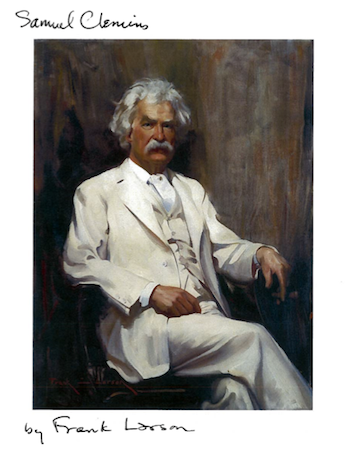Amy Henderson: Red Hot Kathleen Turner
The beloved actress takes to the stage as a witty Molly Ivins just in time for election season
/https://tf-cmsv2-smithsonianmag-media.s3.amazonaws.com/filer/20121012125029Turner.png)
The liveliest 80 minutes of theater in Washington this fall belongs to Kathleen Turner’s one-woman show at Arena Stage, “Red Hot Patriot: The Kick-Ass Wit of Molly Ivins.” It’s a rollicking, loving, and feisty celebration of the wit and witticism of political journalist and commentator Molly Ivins.
As you might guess from the title, this show contrasts vividly with such earlier one-person shows as Julie Harris’s genteel “Belle of Amherst” (Emily Dickinson), or Hal Holbrook’s story-telling performance as Mark Twain. Here, the star does not wear a shawl or a white linen suit, but struts onstage in denim and red cowboy boots. She does not narrate from a rocking chair like Dickinson, nor address the audience center stage as Twain did. Rather, she pronounces with feet propped up on her desk or sitting cross-legged on the floor. She only speaks softly when purring rapier witticisms, and often roars with laughter.

Born into an oil-rich Texas family and educated at Smith, Molly Ivins launched her career as a political journalist with The Texas Observer in the 1970s. She called Texas “reporter heaven” and particularly enjoyed piercing the pomposity of the state legislators who roosted in the Austin capital: “Can you believe,” she once asked, “that God gave me all this material for free?” She gained a national reputation writing op-ed pieces and features for The New York Times and The Washington Post, as well as speaking on the lecture circuit; her column was syndicated in more than 400 newspapers. She worked for the New York Times from 1976-1982 (she considered her obituary of Elvis Presley her highpoint there), and then for the Dallas Times Herald, where she once happily outraged readers by saying of a congressman, “If his I.Q. slips any lower, we’ll have to water him twice a day.”
In an interview conducted this week at Arena Stage, Ms. Turner told me that she explicitly wanted to do this show in the nation’s capital during the fall campaign to beat the drums for Molly Ivins’s essential message: “Get involved, citizens! Beloveds, do not sit back!”
Her performance takes unabashed aim at rallying the troops. An activist and advocate for women’s issues herself, Turner has been delighted by the enthusiastic audience response she has received for the play’s populist pronouncements. She clearly relishes unleashing rolling cascades of Ivins’ irreverence, whether capturing a Texas pol in the cross-hairs or verbally smacking the president that Ivins nicknamed “Dubya” and “Shrub.”

I began our interview by explaining that, like her living portrait of Ivins, the Portrait Gallery focuses on works of art that narrate “visual biography.” I wondered how creating a living portrait differed from shaping a fictional role on stage, and she said it really didn’t—the acting preparation is similar. In the Spencer Tracy tradition (“know your lines and don’t bump into the furniture”), she also emphasized, “No ad libbing!!”
During her stay in Washington, Ms. Turner has visited the Portrait Gallery, so I linked the museum to my next question. The Gallery originally had a policy to collect portraits of the seminal figures of the American story, only after they had been dead for ten years. Now, the Gallery includes contemporary figures; and I wondered how portraying a contemporary figure like Molly Ivins on the stage compared with creating historic personalities like Emily Dickinson or Mark Twain. Turner acknowledged that there was a difference, but that it mainly involved distinguishing a character made familiar by the immediacy of today’s media, rather than one known only from secondary accounts.
In creating the show, Ms. Turner worked closely with the playwrights, twin sisters Margaret Engle and Allison Engel. Their research involved sifting through hundreds of Molly Ivins’s columns, several of her books, and studying her regular appearances as a commentator on CBS’s 60 Minutes. Turner also was fortunate enough to meet Ivins herself, once in the company of Ivins’s great friend Anne Richards.
Ivins died at 62 of breast cancer, but her final column was a recognizable rouser: “We are the people who run this country,” she reminded her readers. “We are the deciders.” At the end of our interview, I asked Ms. Turner what she thought was most significant about Molly Ivins. Her response was lightning fast: “Her belief in the CITIZEN!”
Amy Henderson interviews Kathleen Turner 10/10/12 at Arena Stage.
Tickets are sold out to the Smithsonian Associates “A Red-Hot Evening with Kathleen Turner” on Monday, October, 15 at 7 p.m., but a wait list for tickets is available. The National Portrait Gallery’s cultural historian Amy Henderson recently wrote about Diana Vreeland and Walter Cronkite.
/https://tf-cmsv2-smithsonianmag-media.s3.amazonaws.com/accounts/headshot/Amy_Henderson_NPG1401.jpg)
/https://tf-cmsv2-smithsonianmag-media.s3.amazonaws.com/accounts/headshot/Amy_Henderson_NPG1401.jpg)